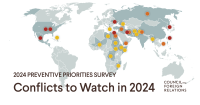The advent of the digital age has revolutionized the landscape of democratic participation, presenting both unprecedented opportunities and profound challenges. In this blog, we aim to explore the intricate intersection between democracy and digital technology, unraveling the challenges it poses and the opportunities it presents for shaping the future of governance and civic engagement.

The Digital Revolution: Shaping Democratic Processes
1. Enhanced Access to Information
The internet and social media platforms have democratized access to information, empowering citizens with instant access to news, diverse perspectives, and political discourse.
2. Increased Civic Engagement
Digital platforms facilitate widespread civic engagement, allowing individuals to voice opinions, organize movements, and participate in political discussions on a scale previously unimaginable.
Challenges to Democratic Principles
1. Misinformation and Disinformation
The proliferation of false or misleading information online poses a significant threat to the integrity of democratic processes, leading to polarization, distrust, and manipulation of public opinion.
2. Digital Divides
Not everyone has equal access to digital tools and information, leading to the creation of digital divides that can disenfranchise certain segments of society.
Emerging Opportunities for Democratic Enhancement
1. Transparency and Accountability
Digital technologies can enhance transparency in governance by providing real-time access to government proceedings, budgets, and policy-making processes.
2. E-participation and Inclusivity
E-participation platforms enable wider and more inclusive participation in decision-making, fostering a more representative democracy that considers diverse viewpoints.
Guarding Democracy in the Digital Era
1. Combatting Misinformation
Efforts to combat misinformation require collaboration between tech platforms, governments, and civil society to promote media literacy, fact-checking, and responsible online behavior.
2. Ensuring Digital Equity
Addressing digital divides through initiatives that provide universal access to technology and internet connectivity is crucial to prevent the exclusion of marginalized communities.
Conclusion
The digital age presents a paradigm shift in how democracies function, offering unprecedented tools for engagement while posing significant challenges. Upholding democratic values in the digital era requires a concerted effort to navigate the complexities of misinformation, ensure equitable access to technology, and harness the potential of digital platforms for enhancing transparency and participation.







